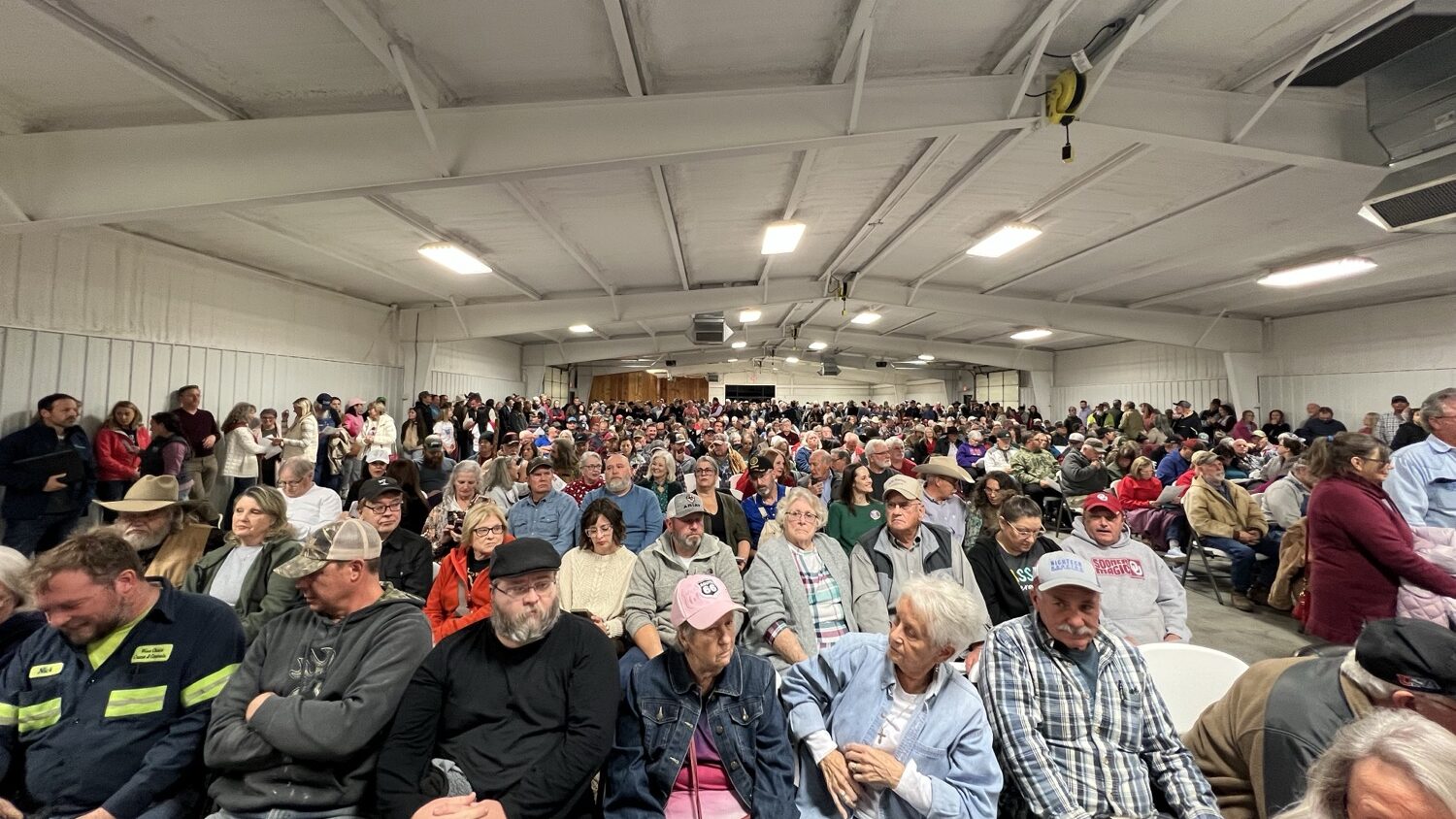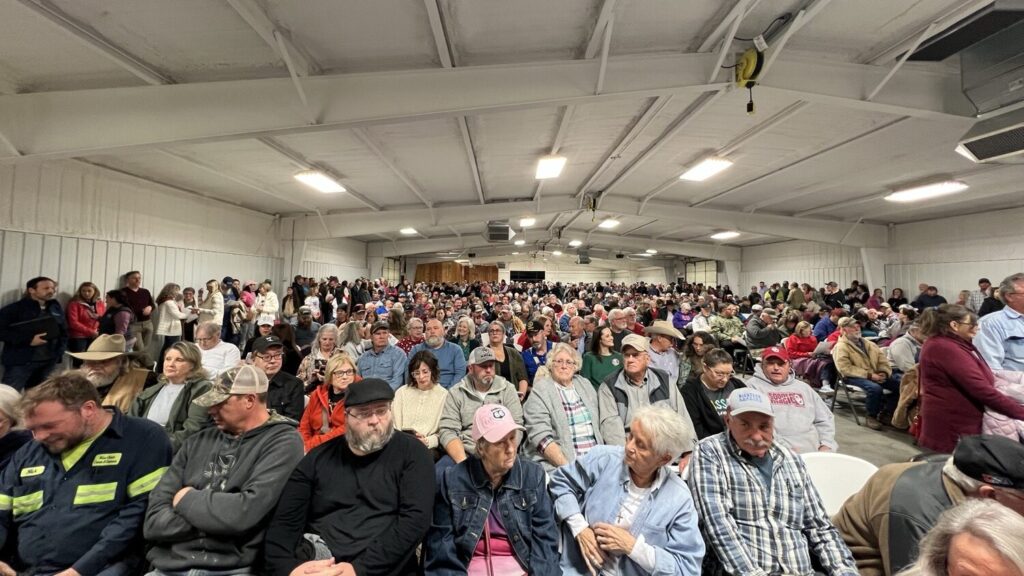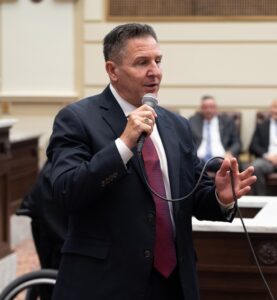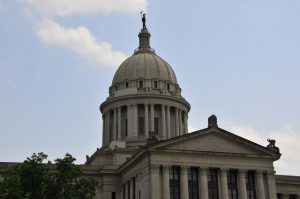Speaker-Elect of the Oklahoma House of Representatives Kyle Hilbert joined other senators, commissioners, and representatives in a standing-room-only crowd at the south end of the Creek County Fairgrounds to talk about the controversial Delta-Plains National Interest Electric Transmission Corridor (NIETC) on Thursday evening.
Earlier in the day, Hilbert had filed House Concurrent Resolution 1001, which vows to take all legislative action available to prevent the establishment of an eighteen-mile wide federal energy corridor in Oklahoma.
“The people of Oklahoma will not stand for private landowners being forced to surrender their property through federal condemnation,” Hilbert said at the time of the filing. “There are state processes in place to get community input and engagement on pending projects of this nature and I urge anyone in the path of this proposed corridor to come and let their voices be heard tonight on this issue.”
And come, they did: traffic was reportedly backed up for at least a mile down Highway 66 as concerned citizens from multiple counties poured in to learn more and express their outrage over the controversial project.

Initially planned as an informative town hall gathering with presentations and Q&A, the meeting turned into a celebration as Hilbert read off an email he’d received just before from the Department of Energy, where the announcement was made that the NIETC would not proceed in its designation process.

On Friday, Hilbert applauded the announcement and said it showed the power of grassroots advocacy and local input.
“This announcement is a testament to the voices of Oklahomans who stood together to defend their land, livelihoods and local autonomy,” said Speaker-Elect Hilbert, R-Bristow. “The proposed transmission line would have imposed an unnecessary burden on our communities without clear local benefits, and we are pleased that the Department of Energy has recognized the concerns raised by our citizens.”
The DOE confirmed the decision in a statement from Kristen Nawoj, spokesperson for the Grid Deployment Office, noting that the Delta-Plains NIETC would not advance into the next phase of the designation process. The DOE also announced plans to release updated maps and details for other proposed NIETCs the week of December 16, as well as to invite further public input.
“We will continue to monitor developments and advocate for policies that align with our state’s values and priorities,” said Hilbert.
“Stay vigilant”
Several members at the meeting stood up to remind those in attendance to “stay vigilant” when it comes to matters concerning property rights, especially in rural areas like those in Creek County.
One of the concerns raised was the use of “human sludge”—that is, human waste—as a fertilizer used on crops. Long believed to be an environmentally friendly way to reuse the waste from cities in a manner that benefited agricultural producers, the practice is coming under extreme scrutiny in Oklahoma as farmers and ranchers begin to speak on what they believe is causing harm to their soil, their crops and their livestock.
Oklahoma has “one of the most extensive biosolid fertilizer programs in the nation,” as more than 80% of the state’s wastewater sludge ends up on crop fields, according to Investigate Midwest’s analysis of state records, as reported in agriculture.com.
“Carbon Capture” is another process under renewed scrutiny by landowners and lawmakers. Earlier this year, Oklahoma University got the largest grant in college history, funded by the US Department of Energy to investigate sites for the “injection of approximately 54 million metric tonnes of carbon dioxide over 20 years.”
State Representative Mark Lawson, of Sapulpa, said that he was encouraged by the outcome of the NIETC project, but said he believed that development must respect the voices of the communities they affect. “We remain committed to working with our federal partners to ensure that Oklahoma’s interests are respected in any future energy infrastructure decisions.”










